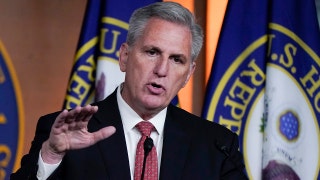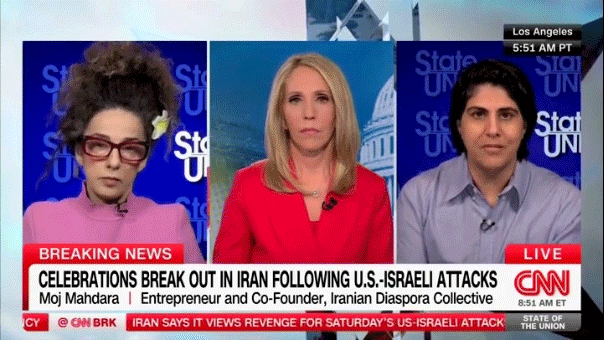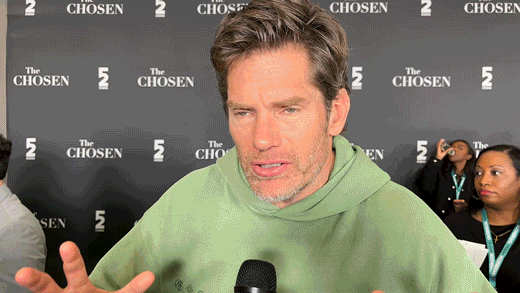NPR CEO says she wants 'active and robust debate' amid formerly-suspended editor's resignation
Independent Women's Forum fellow Beverly Hallberg joined 'Fox & Friends First' to discuss the scandal embroiling publicly-funded NPR after veteran editor Uri Berliner, who was formerly suspended, resigned from this job.
NPR reprimanded Uri Berliner for violating its policies while appearing to turn a blind eye towards the brazen conduct of Katherine Maher before she stepped into her role as the organization's president and CEO.
Berliner, the veteran editor who penned the bombshell essay about NPR's liberal bias, was handed a five-day unpaid suspension for not seeking NPR's permission to appear on another news platform before going to The Free Press. Berliner resigned from the organization, writing in part, "I cannot work in a newsroom where I am disparaged by a new CEO whose divisive views confirm the very problems at NPR I cited in my Free Press essay."
What he was referencing was the trove of social media posts Maher, who took over NPR in March 2024, had written over the years displaying woke ideologies and pro-Democrat activism, which included explicit support towards Hillary Clinton and Joe Biden and attacks on former President Trump.
While her social media activity came long before she joined NPR, it nevertheless appears to be in clear violation of NPR's staff expectations laid out in its ethics handbook according to a Fox News Digital review of its policies.
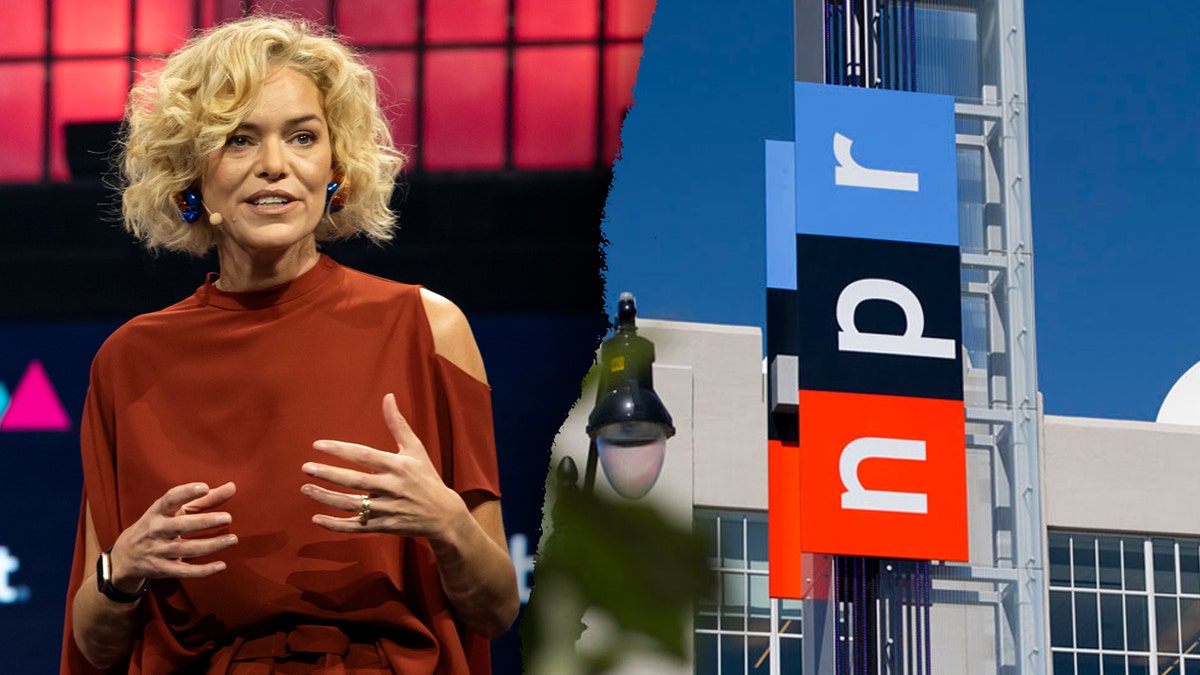
NPR CEO Katherine Maher's political activism displayed on social media appears to go against employee expectations laid out in NPR's ethics handbook. (Getty Images)
"We take seriously our democratic role as watchdogs, holding the powerful accountable as we hold ourselves to the core principles of honesty, integrity, independence, accuracy, contextual truth, transparency, respect and fairness for the people we serve and the people we cover," NPR's handbook says in its opening "Guiding Principles" section.
Under its "Honesty Online" section, NPR states "Even on purely recreational or cultural sites and even if what we're doing is personal and not identified as coming from someone at NPR, we understand that what we say and do could still reflect on NPR. So we do nothing that could undermine our credibility with the public, damage NPR's standing as an impartial source of news, or otherwise jeopardize NPR's reputation. In other words, we don't behave any differently than we would in any public setting or on an NPR broadcast."
NPR WHISTLEBLOWER URI BERLINER RESIGNS: ‘I CANNOT WORK IN A NEWSROOM WHERE I AM DISPARAGED’
A clause in its "Conflicts of Interest" section states "In general, we don't do outside work for government or agencies principally funded by a government, or for private organizations that are regularly covered by NPR." Notably, Maher shared a photo of herself participating in the get out the vote effort in Arizona on behalf of Biden in 2020, even wearing a "Biden for President" hat.
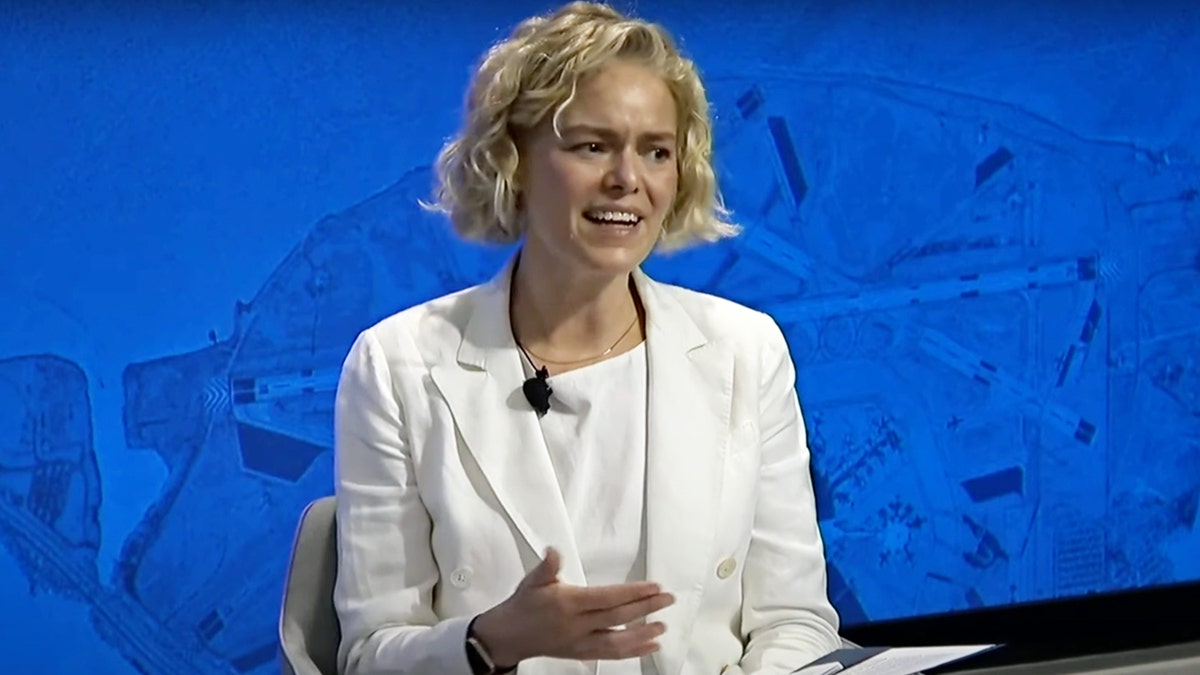
NPR boss Katherine Maher has been a vocal supporter of Hillary Clinton and Joe Biden in the previous elections. (Screenshot/Carnegie Endowment)
The handbook gets even more explicit in its "Impartiality" section.
"We're not advocates. We may not run for office, endorse candidates or otherwise engage in politics in a participatory or activist manner," the handbook reads. "Since contributions to candidates are part of the public record (and not a private expression of choice in a voting booth), those of us connected with news coverage may not contribute to political campaigns or referendums, as doing so would call into question NPR's journalistic independence and impartiality.
It was reported by The Center Square last week that Maher has a history of donating to Democrats as well as Stacey Abrams' PAC.
NPR BOSS ONCE CALLED FIRST AMENDMENT A ‘CHALLENGE’ AND ‘REVERENCE TO THE TRUTH’ A DISTRACTION
The section also delves into social media activity, writing "NPR encourages active participation in civic life and expressions of values. However, the decision to participate in community or national events, including posting on social media, can conflict with NPR's core values when that participation calls into question the credibility, fairness or independence of NPR's coverage or our respect for the people we cover and serve. The intent of this guidance is to allow NPR staff the freedom to show up as their full selves in society as much as possible, while also upholding NPR's journalistic values. This guidance is intended to help staff, supervisors and newsroom managers work together to find that balance."
"NPR journalists may participate in civic and cultural events that do not pose conflicts of interest," the handbook continues. "However, it is always wise to anticipate ahead of time what political or partisan issues or causes might emerge within a civic or cultural event to avoid ethical problems. And we let our supervisors know about any such civic and cultural organizations we do actively engage with, so that any potential conflicts of interest can be headed off."
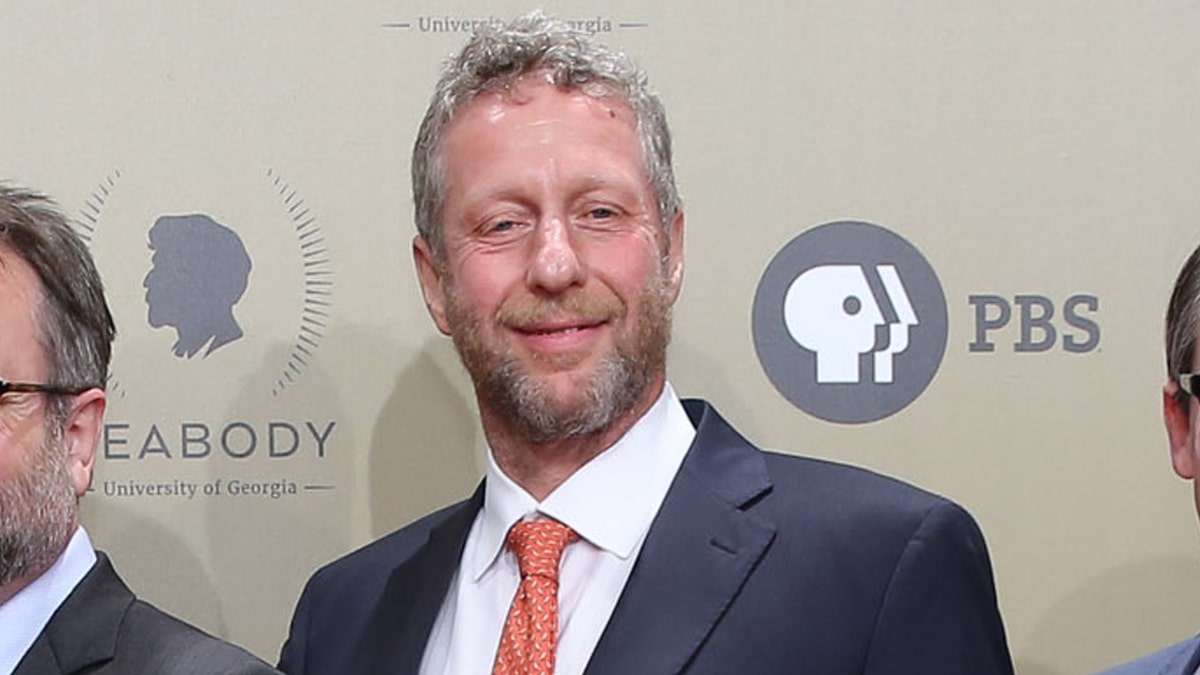
Veteran NPR editor Uri Berliner was hit with an unpaid suspension for violating NPR's policy on appearing on other news platforms without seeking permission before he resigned from the organization. (JP Yim/WireImage)
CLICK HERE TO GET THE FOX NEWS APP
Under the "Accountability" section, the ethics handbook implores NPR staff, "Don't be careless. Keep your opinions to yourself. Imagine what you say or write landing in an AP story or in The Washington Post, and imagine the damage that could cause you or NPR."
"Do not advocate for political issues online. This extends to your Facebook page or a personal blog. Don't express personal views on a political issue that you could not write for the air or post on NPR.org," NPR says in its social media section.
In a statement previously given to NPR's in-house media correspondent David Folkenflik, Maher defended her posts, saying, "In America everyone is entitled to free speech as a private citizen."
Fox News Digital asked NPR whether it had reviewed Maher's social media activity and political donations before it offered her a job and whether such posts would be in violation of NPR's policies had she made them as an employee. NPR did not respond to the request for comment.


